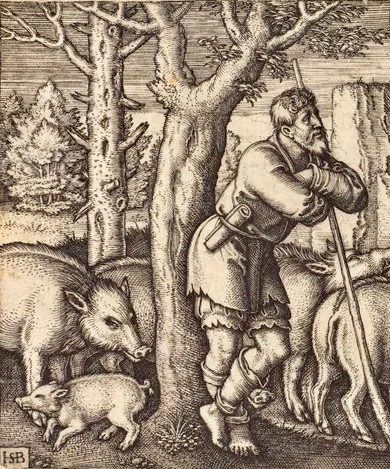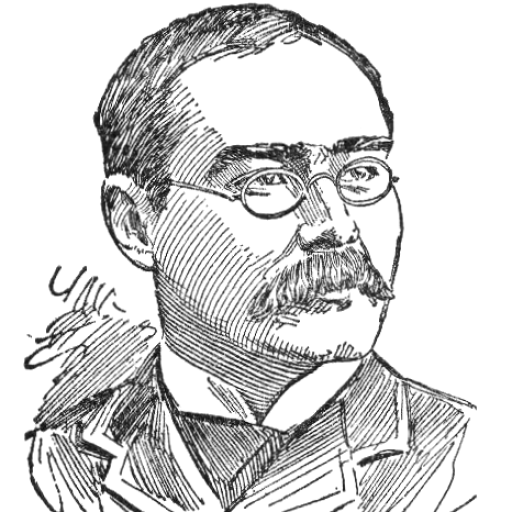And – I have that knowledge to sell!

The well-known Biblical parable (Luke 15:11-32) tells of the younger of two sons, who obtained his inheritance before his father’s death and travelled to a far country, where he squandered it in dissolute living until he has became destitute and was reduced to tending pigs (the vilest disgrace for Jews, to whom Jesus told this parable). He returned to his father, asking to be treated as a hired hand; but his father gave him fine cloths and killed the fatted calf to celebrate his arrival. The elder brother was enraged, saying that he had served the father for many years and had not received even a young goat to feast on with his friends. The father answered that they had to celebrate because his brother was like a dead one who has come back to life. Jesus told this parable to make the point that the Heavenly Father loves us always and is ready to forgive our sins, if we only come back to Him.
Kipling’s poem suggests the Prodigal Son’s point of view. Many young people run away from comfortable homes and choose, for example, to be construction workers or mechanics when they could have been doctors or lawyers. They experience the satisfaction of making it in life without their family’s help; they can say along with the Prodigal Son: “And – I have that knowledge to sell!” Such people may find in this poem an echo of their own feelings.
The Prodigal Son
Here come I to my own again, Fed, forgiven and known again, Claimed by bone of my bone again And cheered by flesh of my flesh. The fatted calf is dressed for me, But the husks have greater zest for me. I think my pigs will be best for me, So I'm off to the Yards afresh. I was never very refined, you see, (And it weighs on my brother's mind, you see) But there's no reproach among swine, d'you see, For being a bit of a swine. So I'm off with wallet and staff to eat The bread that is three parts chaff to wheat, But glory be! - There's a laugh to it, Which isn't the case when we dine. My father glooms and advises me, My brother sulks and despises me, And Mother catechises me Till I want to go out and swear. And, in spite of the butler's gravity, I know that the servants have it I Am a monster of moral depravity, And I'm damned if I think it's fair! I wasted my substance, I know I did, On riotous living, so I did, But there's nothing on record to show I did More than my betters have done. They talk of the money I spent out there - They hint at the pace that I went out there - But they all forget I was sent out there Alone as a rich man's son. So I was a mark for plunder at once, And lost my cash (can you wonder?) at once, But I didn't give up and knock under at once. I worked in the Yards, for a spell, Where I spent my nights and my days with hogs, And shared their milk and maize with hogs, Till, I guess, I have learned what pays with hogs And - I have that knowledge to sell! So back I go to my job again, Not so easy to rob again, Or quite so ready to sob again On any neck that's around. I'm leaving, Pater. Good-bye to you! God bless you, Mater! I'll write to you.... I wouldn't be impolite to you, But, brother, you are a hound!
